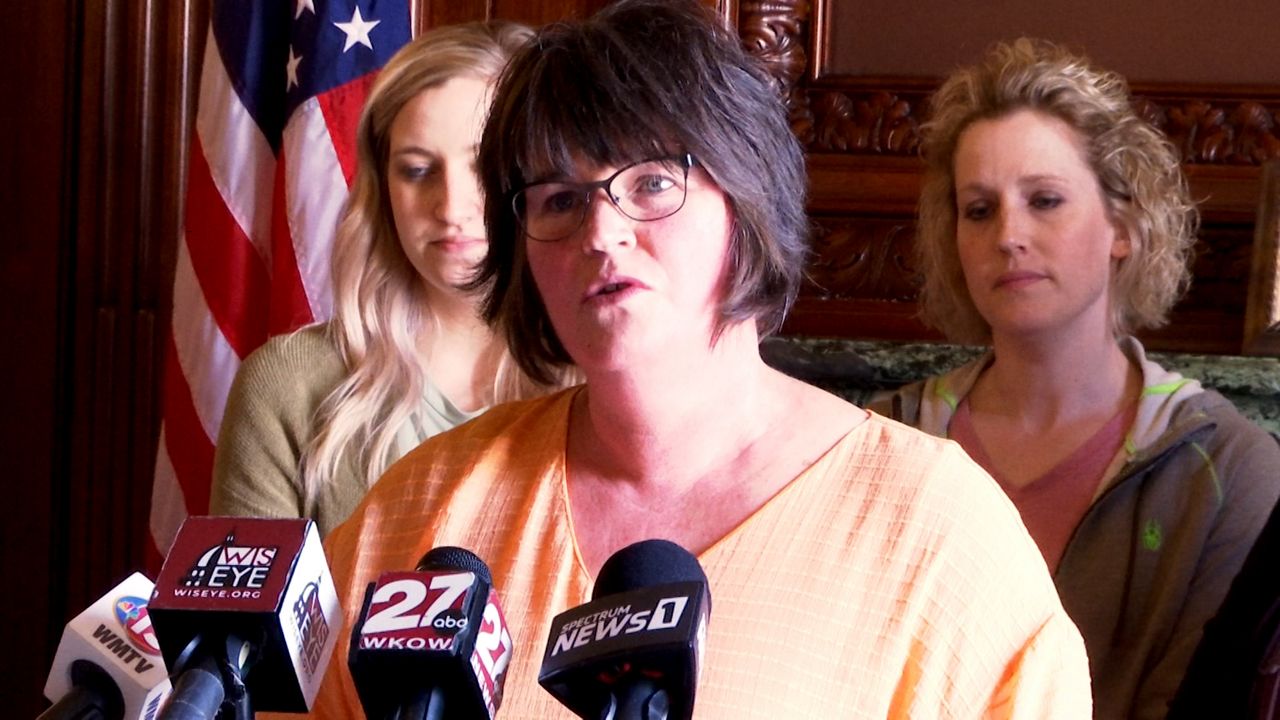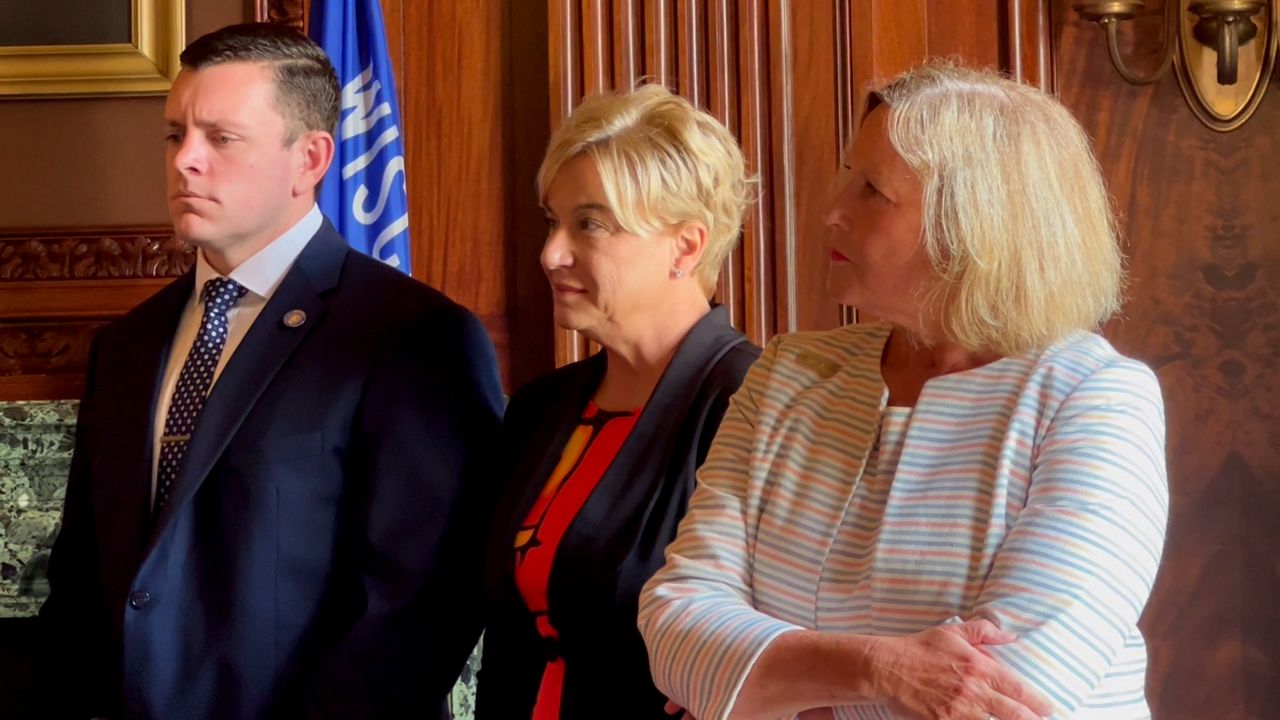MADISON, Wis. — A group of advanced practice nurses gathered at the Wisconsin Capitol this week to voice their frustrations with Gov. Tony Evers.
Though SB 394 was vetoed last month, nurses took their concerns to the Capitol this week following the resignation of the chair of Wisconsin's nursing board.
On the heels of Dr. Peter Kallio's announced departure, largely in protest of the veto, nurses held a press conference Thursday to show their support for his decision.
“During the COVID pandemic, which was a public health emergency, we as NPs were okay to practice," Lori Kisting, a psychiatric mental health nurse from Stevens Point, explained. “We didn't have to have the collaboration at that point in time. What makes a difference now?”
The bill vetoed in April would have allowed advanced practice nurses to run their own clinics without being required to enter a so-called collaborative agreement with a physician.

Those nurses said it is often a challenge, especially in rural parts of the state, to find a physician to collaborate with. The process can also be costly for small, independent practices.
“Currently, I am required to find and maintain a written collaborative agreement with a physician in order to practice what I know,” Rebecca Gilbertson, who owns a clinic in Medford, told reporters. “I find this requirement to be challenging. I can be a day away from closing my practice if I were to lose my collaborating physician.”
In his veto message, Gov. Evers stated that he opposes “allowing practices functionally equivalent to those of physicians” without more “education, training and experience.”
While AARP, the Wisconsin Association of School Nurses and the Wisconsin Association of Local Health Departments and Boards all registered in favor of the legislation, several groups were also opposed to the measure. These include the Medical College of Wisconsin, the Wisconsin Academy of Family Physicians and the Wisconsin Medical Society.
“Wisconsin’s excellent health care system is rooted in physician-led, team-based care,” Dr. Jerry Halverson, who chairs the Wisconsin Medical Society board of directors, said in a written statement. “Physicians have the broadest and deepest education and training in the health care world, which greatly benefits patients.”
Halverson also accused nurse lobby groups of not making a good-faith effort in the bill drafting process.

“This session, numerous physician groups attempted to work with nurses on a potential legislative compromise,” Halverson said. “In early spring, we thought we were very close to a deal, but the nurse lobbying groups walked away from the table. Now that their bill was vetoed, they’ve unfortunately moved on to heavy-handed political tactics. We don't need even more politics interfering with our health care system.”
However, the executive director of the Wisconsin Nurses Association, which advocates for nearly 96,000 nurses across the state, felt that a requirement of collaboration for nurses with less than two years of experience was a fair compromise.
“What we wanted to do was create a separate license that acknowledges and puts in the criteria and the responsibilities of these advanced practice nurses,” Gina Dennik-Champion said. “The accountability to the patient.”
Now trying to hold the governor accountable, State Sen. Patrick Testin, R-Stevens Point, has vowed to make sure his bill is introduced again during the next legislative session.



